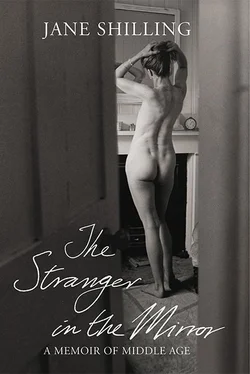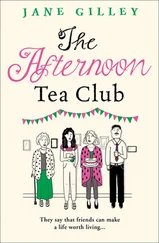The churchwarden, a slight woman in a neat blue jacket and owlish glasses, began to toll the pair of twelfth-century bells whose knell had marked the passing of the inhabitants of the churchyard. I wondered if babies got the full funeral service, even day-old Louisa Fanny. There is a shortened form of baptism in the Book of Common Prayer, for urgent use at home in cases where a child is thought unlikely to live, but no form of the burial service specially adapted for infants.
Man that is born of a woman hath but a short time to live, and is full of misery. He cometh up, and is cut down, like a flower; he fleeth as it were a shadow, and never continueth in one stay … I wondered how often, as parents bringing child after child to the churchyard, like apples or sheaves of corn to Harvest Festival, you could hear those words without going mad with the pity of it. I tried to think myself inside the minds of these Hinges, some of whose blood, after all, ran in my veins and was even now animating the brain struggling to conjure their shades from the dates neatly cut on their tombstones by the stonemason’s chisel.
They weren’t a very ambitious family. Didn’t do much to better themselves. The census showed them existing for generation after generation as agricultural labourers, farmhands, scratching a living from the same patch of earth already worked over by their fathers and grandfathers. I imagined them cold, sparse, cloddish as the land on which they worked. As shepherds, they were used to the random ease with which the spark of life could be extinguished, by accident of birth, crow, fox, worrying dog, harsh weather, treacherous terrain, disease. Perhaps that farmer’s fatalism, that apparent lack of will to do better, own land, prosper, extended to the children they kept doggedly producing, these Williams and Florences and Louisas, so few of whom survived into adulthood.
I thought of my mother’s father, whose lack of parents was the great drama of his life. Of these distant relations, who must have had to find a way of edging the death of a child into their peripheral consciousness; of refusing to make it the defining drama of their lives. All those lost histories. All that contradictory longing and detachment dwindled to the exiguous sprig of the family tree – the smallest a family could be and still lay claim to the name – their descendants, my son and me.
I couldn’t summon any sense of attachment to the bony clan of ancestors buried some feet below the turf on which we stood. It was the place itself that haunted me. I’d done my best to get away from it; this flat watery landscape of Danish pirates, decayed medieval grandeur and hideous modern decline. I was always trying to graft myself on to prettier, more welcoming places: couldn’t visit somewhere new without wondering what it would be like to settle there, to belong; had succeeded in moving myself fifty miles or so upstream to Greenwich.
But to return here was like hearing again faintly the sound of music I’d known a long time ago. Accumulated layers of memory and experience, more recent and more vivid, had almost obliterated it but then something – a chance combination of notes, the mud, the water, the flint church, the owl on the stump, the weasel crossing the dusty track – something woke up that sleeping sense of belonging somewhere so intensely that you are the place, and the place is you.
I was slow and reluctant to acknowledge the part of myself that was rooted in the North Kent marshes – longing, always, to come from somewhere easier to love. But no such ambiguity clouded my son’s attachment to the place where he was born.
When he was small I used to flee London at the weekends, strapping him into his car seat and driving to Oxford where we’d share a picnic in the Parks or the Botanic Garden, walk along the river, wander the pavements, peering in through the open wicket gates of the colleges from where everyone I had known had now vanished. The result was that Alexander developed a lively hatred of food eaten out of doors, botanical gardens, long car journeys, and anything to do with Oxford.
Turning the car away from Crick Road, where my tutor had taught Browning and Tennyson in a garden shed where two rickety chairs and a single-bar electric fire crouched among stalagmite piles of books, thickly powdered with the ash of innumerable chain-smoked Disque Bleu, I would be gripped by an exile’s piercing sense of being shut out from the land of lost content.
‘Wouldn’t it be lovely to live here?’ I’d sigh. No, no, Alexander would say urgently. We live in Greenwich. London is our home. Faugh, London, I’d sneer, unable to admit that I wasn’t just passing through, though it was twenty years and more since I’d left Kent for Oxford, and Oxford for London. I hadn’t realised that if you have a baby in King’s College Hospital, Denmark Hill, what you’ve given birth to is a Londoner. I only really understood when someone gave us a video of Bedknobs and Broomsticks , a film in which three cockney children are evacuated to the countryside and lodged with an amateur witch, Miss Price, among whose more successful spells is the ability to make a large brass bed fly. When urgent business calls her to the capital, she and the children mount the bed, which sails off across the night sky like a great four-postered galleon, setting them down moments later in what turns out to be Notting Hill.
Is this London? asks the littlest child. Yes, says his sister, rapt and blissful to be home. Can’t he smell the lovely, sooty London air?
This, my son explained, was how he felt about London. He liked the smell of it. And the noise. It was exciting. He didn’t want to move, particularly not to the country, which was full of pointless trees, dangerous animals, vile agricultural stinks and no shops, and populated exclusively by people wearing dung-coloured clothes and mumbling incomprehensibly about haylage and worm burdens.
I grumbled, but made no serious plans to move. Instead I planted my resentment of city life in the fertile London earth. There were bluebells in the garden of the Greenwich house when I bought it, and a hawthorn hedge like the one around the playground of my village school. I planted an apple tree, climbing roses, phlox, lupins and nasturtiums. A wild hop self-seeded in the rose bed and swarmed over the Variegata di Bologna. The place began to look as though a modest village house had come to visit a London cousin and decided to stay.
And after a while, though I still threatened to leave the city from time to time – when a lap-dancing club and a gambling arcade opened at the top of our road; when men from the council came and chopped down the lime trees in our street – the thought of leaving the familiar territory, the river, the great chestnut trees in the park, the masts of the Cutty Sark , the florid quadrangles of the Naval College, the grocer and butcher who knew me by name, the London Library, the wren in the hawthorn hedge, gave me a feeling as though someone were tugging at the very centre of me – somewhere more elemental than the heart: in the seventeenth century they would have called it the bowels.
The house assumed (or revealed) a personality. Because it was so badly built it felt flighty to me, impermanent, like a beach hut. I was always surprised to find when we came back from holiday that it was still there at the end of the street and hadn’t nipped off somewhere while our backs were turned.
It is hard for two people to live together all alone with nothing to mediate the intensity of their relationship and so the house became a character in our domestic life. ‘Knock through!’ urged friends, folding themselves with difficulty into one or other of the two exiguous downstairs rooms filled with spindly Victorian chairs on which no one heavier than a child could safely sit. But from my desk (which was, at mealtimes, the dining table) I had a view framed by doorways like a Dutch interior, over the book-strewn table, across the narrow hall and into the living room, where tarnished silver lustre jugs and cups stood on top of a cupboard and a white china hand (one of a macabre pair of bookends) pressed against the white-panelled wall as though trying to keep it from toppling over. I liked this vista. The milky pallor of the walls and cupboard was easy for the eye to rest on and the unseen part of the room gave a companionable feeling that at any moment a figure might step into view.
Читать дальше












